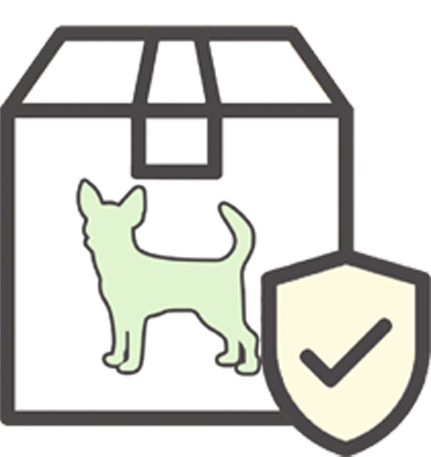Tips for Protecting your Dog from Foreign Body Ingestion
Friday, December 14, 2018 10:46:46 AM America/Los_Angeles
We already know that most dogs will ingest almost anything through the mouth. Usually, this occurs out of curiosity, but sometimes a dog can swallow a foreign body intentionally or accidentally. The phrase “foreign body” refers to any non-edible items that your dog might swallow.
Typically, pets tend to play or chew on nonfood items, especially during housebreaking. As a result, a swallowed foreign body might get stuck in your dog’s alimentary canal and require the urgent attention of a vet. Besides, some dog breeds are indiscriminate eaters, for example, Labradors – puppies and younger dogs being at a higher risk.
What’s more, the severity, location, and degree of obstruction determines the symptoms your dog exhibits. Given that, it is imperative that you contact a qualified vet in resolving this problem. Below is a list of the most commonly ingested foreign bodies:
- Fishing hooks
- Balls
- Toys
- Wee wee pad
- Sticks
- Socks/stockings
- Pencils
- Bikinis
- Steel wool pads and barbeque brushes
What Happens After My Dog Ingests a Foreign Body?
Note that some foreign bodies are either too small or too smooth to pose health risks to your dog. However, larger objects can cause serious health risks if they get stuck in the alimentary canal. In case that happens, they may cause vomiting, pain, and constipation. Also, peristalsis may pose significant danger to your dog as it tries to push the object into the stomach.
Assuming a swallowed object isn’t removed, it may result in the build-up of pressure thus compromising the flow of blood and devitalizing the gut. In severe cases, a foreign object may lead to the rupture of the intestinal wall, which gives access to harmful bacteria. In turn, this causes the swelling of your dog’s abdomen, shock, peritonitis, and finally death.

What are the Clinical Signs of an Ingested Foreign Body?
Several clinical signs can indicate that a foreign body is lodging in the gut. Interestingly, the severity of these symptoms reveals the degree of obstruction, location, duration, and type of ingested foreign body. Among these clinical signs are:
- Lethargy
- Drooling
- Abdominal pain
- Loss of appetite
- Dehydration
- Diarrhea with or without blood /constipation
- Physical evidence of foreign object stuck in the mouth
- Vomiting
- Increased respiration due to pain
What to Do When Your Dog Swallows a Foreign Object
You should visit a vet immediately you suspect that your dog has swallowed a foreign body. In case your vet is unavailable, consider calling an animal clinic and brief them about your emergency. By doing so, you receive recommendations regarding the appropriate course of action. If this happens to your dog, your best bet is letting a professional vet assess the situation. Most importantly, the sooner you resolve this issue, the better for your dog and your mental health as well.
Diagnosing the Culprit
In most cases, your vet can isolate the cause of blockage by feeling along the tummy wall. Even so, sometimes a vet may need to hunt for the ingested objected. Various procedures are available for diagnosing what type of object your dog has ingested. These include:
Ultrasound
For this procedure, you should ensure that only a qualified professional perform it on your dog. Fortunately, it is one of the most effective methods for identifying foreign bodies. Besides spotting the cause of obstruction, ultrasound lets vets isolate changes in bowel movements that indicate trouble.
Radiographs
Its is one of the most onvenient procedure for identifying large foreign objects. However, its effectiveness in identifying small bodies is minimal.
Barium X-Rays
In non-clear cases, your vet might prescribe the use of barium x-rays. In this procedure, the vet traces the contrast agent as it flows through your dog’s gut. Failure of the agent to pass through specific gut landmarks signals the presence of foreign objects.
Removal of Ingested Foreign Bodies
Hopefully, any ingested foreign object is removable by inducing vomiting or using an endoscope. The latter process involves inserting a fiber optic tube into your dog’s gut to retrieve any ingested object. Regrettably, your dog may require a laparotomy and hospitalization.Often times, if the foreign body does not pose a threat, the vet will suggest you take your dog home and wait until her/she passes the object through stool. In this case, you should have your dog relieve themselves on an indoor dog potty such as a DoggieLawn. This way, you can monitor your dog and will know when they have passed the object.
Preventing your dog from Ingesting Foreign Bodies
Use the tips below to prevent your dog from ingesting foreign objects:
- Appropriately store ingestable objects in a dog proof chest.
- Prevent your dog from accessing your rubbish bin.
- Always keep your dog on a leash while walking it outdoors.
- Trash any chewed toys.
- Keep the laundry room out of bounds to your dog as most dogs have a liking for underwear and socks.
- Ensure that you monitor your dog when feeding him on bones. Also, be sure to remove any bone leftovers as soon as the meat is gone.
- Ensure that no swalloable items are present in the dog bathroom.
- Finally, consult with your vet about appropriate methods of cleaning your dog's teeth.
Bottom line
If your dog swallows a foreign object, you should immediately notify a vet. Unfortunately, some dogs are habitual offenders and never learn their lesson. Given that, you might need to have your dog wear a muzzle during walks.


